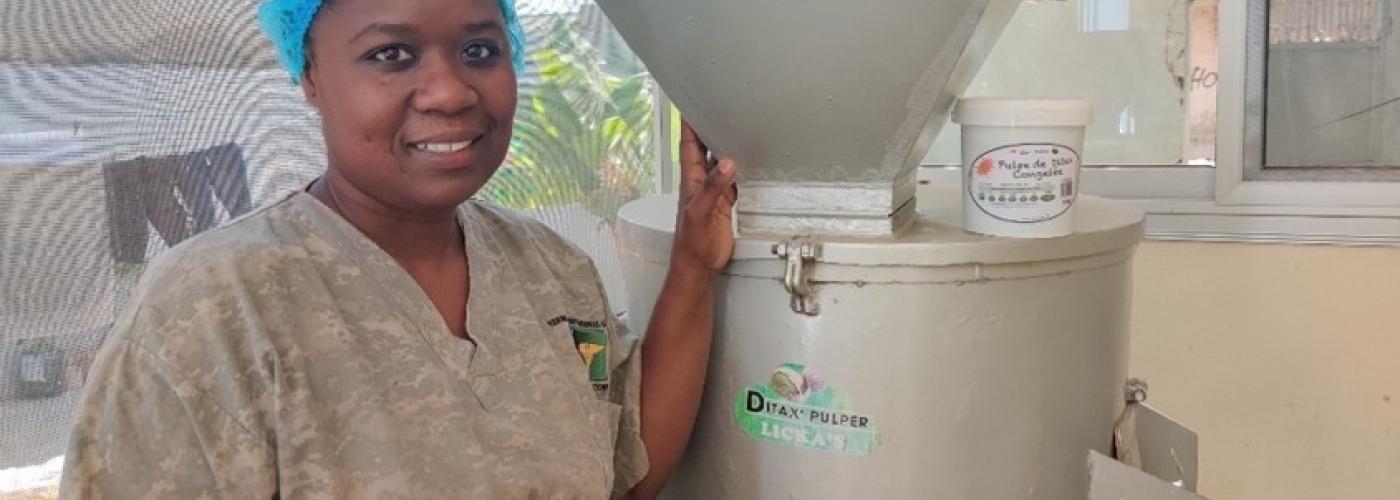Women-Owned Enterprise Combines Technology and Food Safety for Fruit Processing Invention
Image

Senegal is home to an emergent fresh fruit and vegetable sector that employs many women, from production to retail. Despite challenges in maintaining quality throughout the product lifespan, there are growing markets for fresh fruit and vegetables, like “ditax”. Ditax, or Detarium Senegalese J.F. Gmel, is a forest tree found in Senegal whose fruits are locally called ditax in Wolof.
Ditax is rich in vitamin C and widely consumed in Senegal as a drink, marmalade, sorbet or fresh. Traditionally, small businesses have processed ditax using a pestle and mortar, which is challenging for the women who are most represented in the fruit sector. In addition, processing ditax by hand results in inconsistent texture, quality, and safety of the finished product.
Nafissatou Diop, an agrifood research engineer and entrepreneur working at Senegalese Food Technology Institute, set out to improve fruit processing. She is the owner of Senfruits Processing Technology, a company that specializes in the processing of local agricultural product, including ditax.
To improve the technical capacity and food safety standards of her production, Nafissatou partners with Feed the Future Business Drivers for Food Safety (BD4FS), funded by USAID and implemented by Food Enterprise Solutions. BD4FS trained Senfruit employees and management on pre-HACCP (Hazard Analysis Critical Control Points), which are a basis for safe and hygienic food handling. Throughout the training process BD4FS food safety experts provided Nafissatou with technical assistance to successfully implement the prerequisite programs in her company.


